The 12 Best Foods for Unblocking Your Arteries
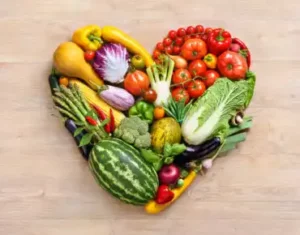

Reviewed and approved by the pedagogue in physical education and nutritionist Elisa Morales Lupayante
Choosing foods that help us unclog the arteries is key to maintaining good health. People who eat an unhealthy diet often suffer consequences, such as obesity or high cholesterol, and are at higher risk of cardiovascular disease. To enjoy good health, we’d like to propose 12 foods that will help you unclog your arteries.
Foods for unclogging your arteries
Progressive artery blockage (atherosclerosis) is a problem that is more and more common in Western countries. It causes more deaths per year than smoking or alcohol. Worst of all, it’s a silent enemy that doesn’t have any signs.
If your diet is based on calorie-rich, fatty, sugary foods, it’s more likely that you’ll have cholesterol, high blood pressure, and circulatory problems. Also, this diet increases your risk of suffering from heart diseases.
To avoid these diseases and live better, we recommend that you add the following foods to your diet for unblocking your arteries.
1. Garlic
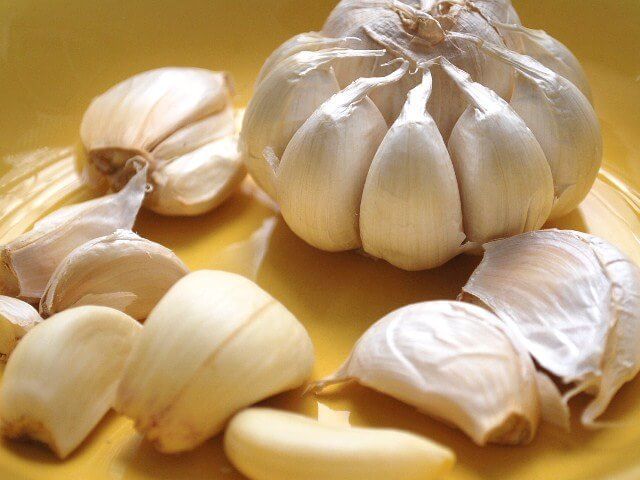
Garlic is rich in antioxidants and it has the ability to fight free radicals. It also reduces your cholesterol levels, reduces your blood pressure, and improves your blood flow.
A clove of raw garlic per day unblocks your arteries. It also prevents the accumulation of fat.
2. Olive oil
This is a very versatile and healthy oil, which has not been shown to increase blood cholesterol. In fact, it’s recommended for heart health in general.
Even so, moderate consumption is recommended due to its calorie content.
3. Avocados
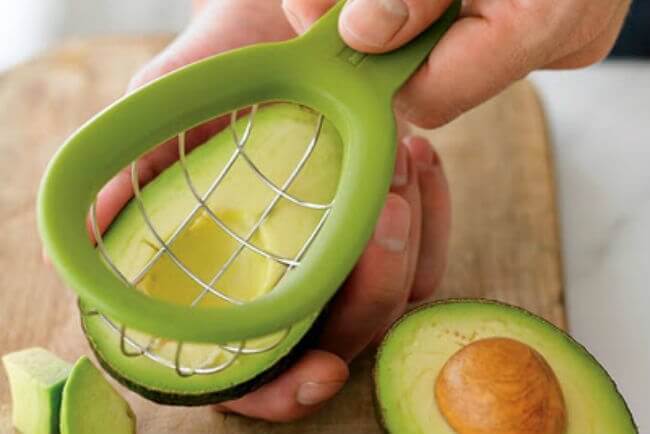
Avocados have properties similar to olive oil. They have essential fatty acids, that prevent the oxidation of fat accumulated in your arteries. They also reduce your cholesterol and make you feel full.
4. Oats
Oatmeal is a satiating food that provides a lot of energy and has properties to neutralize the ability of cholesterol to stick to the walls of the arteries.
5. Fruit
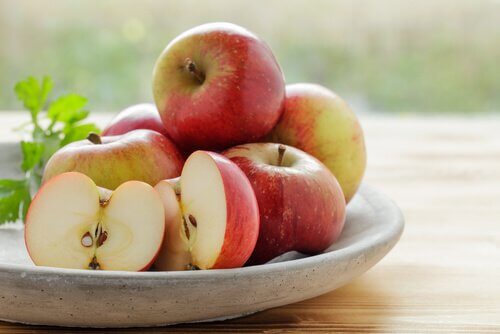
This includes strawberries, apples, grapefruit, and grapes, among others.
These are fruits with a large amount of pectin. Pectin is a soluble fiber that reduces your low-density lipoproteins (LDL).
In addition, fruits, thanks to their high content of vitamins and minerals, are recommended in all types of diets.
6. Asparagus
This is a vegetable that’s very healthy with excellent properties.
Asparagus helps unclog arteries naturally. It also helps reduce the levels of bad cholesterol (LDL) in your blood. In addition, it prevents the formation of blood clots.
Also read: Cream of Green Asparagus Soup
7. Pomegranate
This rich purple drink reduces the damage caused by fat when it accumulates in your arteries.
8. Soy
Soy and its products (including tofu) slightly reduce your bad cholesterol (LDL). Eating 3 tablespoons of this cereal per day is synonymous with enjoying good cardiovascular health.
9. Broccoli
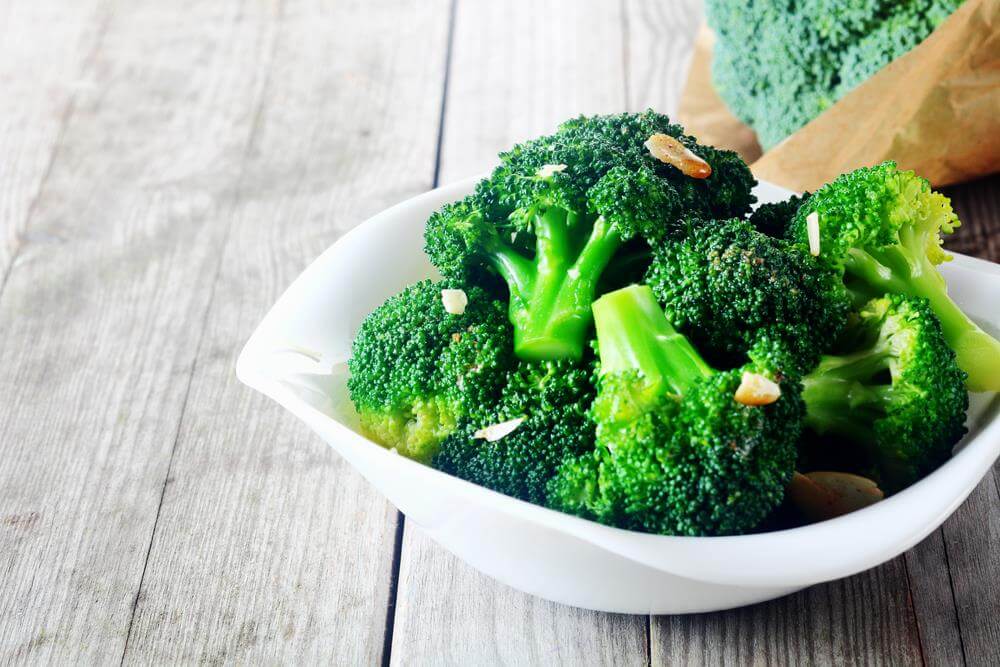
This delicious vegetable from the cabbage family has a lot of vitamin K. This helps the calcium aid your natural processes. Also, broccoli gives you a good amount of fiber and promotes good arterial health.
10. Oily fish
This group of fish is made up of:
- Salmon
- Tuna
- Herring
- Mackerel
- Sardine
- Trout
These are healthy fish because they give you omega-3 fatty acids. These acids are necessary for unclogging your arteries. Also, they prevent the formation of blood clots and balance your blood pressure.
11. Eggplant
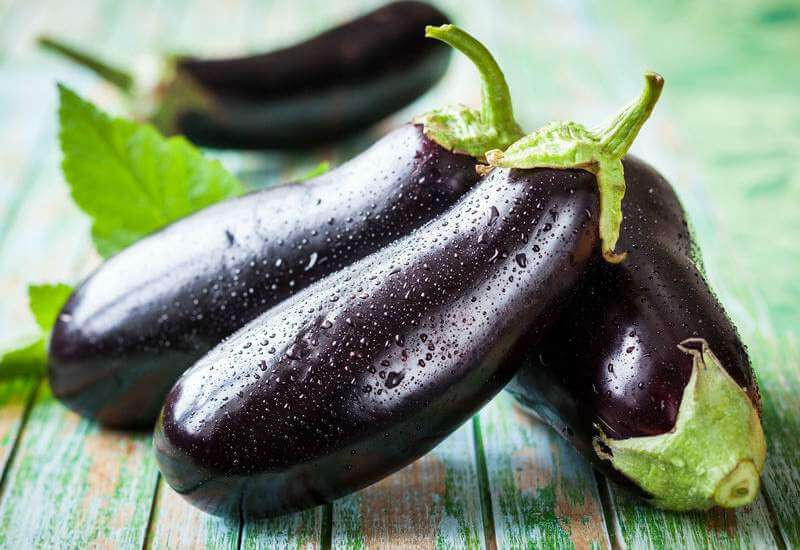
12. Turmeric
This orange-colored spice has anti-inflammatory properties and helps reduce damage caused by accumulated fat on artery walls. It could also reduce the risk of blood clots.
All cited sources were thoroughly reviewed by our team to ensure their quality, reliability, currency, and validity. The bibliography of this article was considered reliable and of academic or scientific accuracy.
- Banerjee, S. K., & Maulik, S. K. (2002). Effect of garlic on cardiovascular disorders: A review. Nutrition Journal. https://doi.org/10.1186/1475-2891-1-1
- Blekkenhorst, L. C., Bondonno, C. P., Lewis, J. R., Woodman, R. J., Devine, A., Bondonno, N. P., Lim, W. H., Zhu, K., Beilin, L. J., Thompson, P. L., Prince, R. L., & Hodgson, J. M. (2018). Cruciferous and Total Vegetable Intakes Are Inversely Associated With Subclinical Atherosclerosis in Older Adult Women. Journal of the American Heart Association, 7(8), e008391. https://doi.org/10.1161/JAHA.117.008391
- Cherubini, A., Vigna, G. B., Zuliani, G., Ruggiero, C., Senin, U., & Fellin, R. (2005). Role of antioxidants in atherosclerosis: epidemiological and clinical update. Current pharmaceutical design, 11(16), 2017–2032. https://doi.org/10.2174/1381612054065783
- Guasch-Ferré, M., Liu, G., Li, Y., Sampson, L., Manson, J. E., Salas-Salvadó, J., Martínez-González, M. A., Stampfer, M. J., Willett, W. C., Sun, Q., & Hu, F. B. (2020). Olive Oil Consumption and Cardiovascular Risk in U.S. Adults. Journal of the American College of Cardiology, 75(15), 1729–1739. https://doi.org/10.1016/j.jacc.2020.02.036
- Marion, B. R. (2004). Oat may keep arteries out of sticky situations. Agricultural Research. Disponible en https://agresearchmag.ars.usda.gov/ar/archive/2004/jun/oats0604.pdf
- Rothberg, M. B. (2013). Coronary Artery Disease as Clogged Pipes. Circulation: Cardiovascular Quality and Outcomes.
- Marette, S., Roosen, J., & Blanchemanche, S. (2008). Health information and substitution between fish: Lessons from laboratory and field experiments. Food Policy. https://doi.org/10.1016/j.foodpol.2007.10.003.
- Mozaffarian, D., & Wu, J. H. Y. (2018). Flavonoids, Dairy Foods, and Cardiovascular and Metabolic Health: A Review of Emerging Biologic Pathways. Circulation research, 122(2), 369–384. https://doi.org/10.1161/CIRCRESAHA.117.309008
- Riccardi, G., Giosuè, A., Calabrese, I., & Vaccaro, O. (2022). Dietary recommendations for prevention of atherosclerosis. Cardiovascular research, 118(5), 1188–1204. https://doi.org/10.1093/cvr/cvab173
- Serna-Saldívar, S. O., Hernández, D., S. (2020). Dietary Fiber in Cereals, Legumes, Pseudocereals and Other Seeds. In: Welti-Chanes, J., Serna-Saldívar, S., Campanella, O., Tejada-Ortigoza, V. (eds) Science and Technology of Fibers in Food Systems. Food Engineering Series. Springer, Cham. https://doi.org/10.1007/978-3-030-38654-2_5
- Thushara, R. M., Gangadaran, S., Solati, Z., & Moghadasian, M. H. (2016). Cardiovascular benefits of probiotics: a review of experimental and clinical studies. Food & function, 7(2), 632–642. https://doi.org/10.1039/c5fo01190f
- Uthumporn, U., Fazilah, A., Tajul, A. Y., Murad, M. (2016). Physico-chemical and Antioxidant Properties of Eggplant Flour as a Functional Ingredient. Advance Journal of Food Science and Technology, 12(5):235-243. DOI:10.19026/ajfst.12.2905
- Wei, T., Liu, J., Zhang, D., Wang, X., Li, G., Ma, R., Chen, G., Lin, X., & Guo, X. (2021). The Relationship Between Nutrition and Atherosclerosis. Frontiers in bioengineering and biotechnology, 9, 635504. https://doi.org/10.3389/fbioe.2021.635504
- Weschenfelder, C., Lorenzon-dos-Santos, J., Lopes-de-Sousa, A. P., Paiva-de-Camposa, V., Marcadenti, A. (2015). Avocado and Cardiovascular Health. Open Journal of Endocrine and Metabolic Diseases. 05 (07). DOI: 10.4236/ojemd.2015.57010
- Zhao, C. N., Meng, X., Li, Y., Li, S., Liu, Q., Tang, G. Y., & Li, H. B. (2017). Fruits for Prevention and Treatment of Cardiovascular Diseases. Nutrients, 9(6), 598. https://doi.org/10.3390/nu9060598
This text is provided for informational purposes only and does not replace consultation with a professional. If in doubt, consult your specialist.








